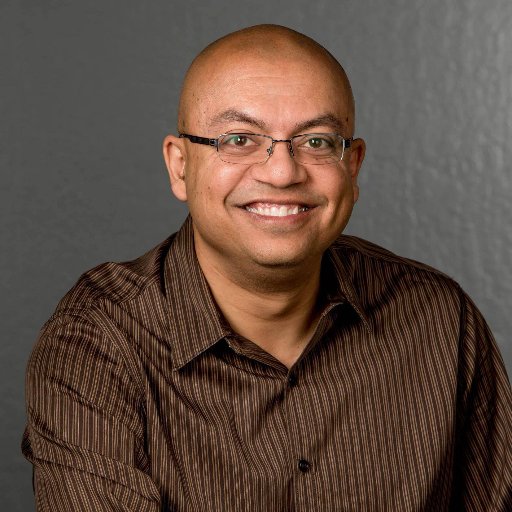Or listen in your favorite podcast app
Apple Podcasts / Google Podcasts / Stitcher
Throughout his career, Arijit Mukherji (LinkedIn, Twitter) has had the opportunities to learn, innovate and lead. Now, as the CTO of SignalFx, he gets to do all those things at once.
On this episode of IT Visionaries, Arijit details his rise through the tech industry, including a number of years at Facebook in the midst of its massive growth. He also explains why he took the leap of faith to join SignalFx and what it was like rising from Employee No. 1 to the role of CTO.
Best advice for a first-time CTO: “Take time and understand the expectations of your role. Ask around and figure out what the expectation of your role is before trying to act very quickly. Then, realize what responsibilities are playing to your strengths or are things that you enjoy. I think passion is a force multiplier, personally. So if you’re passionate about something, you’ll be good at it, you’ll do it well. And so I think figuring out what the business needs from you – obviously, understand the expectations – and also find a way to focus it towards your strengths and then try to get help where you know you’re maybe not as passionate about certain things.”
Key Takeaways:
When his interest in start-ups was born — (3:00)
Arijit graduated from college in the late 1990s, which was the peak of the internet boom. He was offered a position at a start-up but instead took a job with Cisco. Eventually, the start-up went on to have a successful IPO and Arijit was wondering if he had made a mistake not taking a risk to join them at the beginning. It made him evaluate the position he was in and do a cost-benefit analysis of staying at a big company versus branching out and taking advantage of all the opportunities around him. In the end, that’s what led him to take a risk at a company called Facebook.
“I’m in Silicon Valley. This is where the action is, this is where you stay. Of course, it’s expensive to stay, but there’s so much opportunity. If I remained in a big company, then am I really exploiting the opportunity that’s around me? Like if I’m going to keep on working just in a big company, might as well move somewhere different [with a] great quality of life.”
Arijit’s time at Facebook — (5:00 & 28:00)
Arijit joined Facebook in 2007 when the company was what he called “a young up and comer in the industry.” The social network had only 400 employees, less than 100 engineers, and only a fraction of active users compared to the billions it has now. Arijit stayed for five years and helped the company scale and achieve massive success.
He learned a lot while at Facebook and was impressed by the technical skills of those around him. When he joined, he had nearly 10 years of experience in the IT world, but Arijit found that there were things even young, inexperienced engineers could teach him.
“That’s when I’m thinking, ‘Whoa, if I enjoyed this experience so much, why not try something even smaller? Like why not try to see what happens when a company grows from nothing to something.’”
“For the most part, when you build a product, it’s mostly about getting it to work. You’re not going to have millions of users. So things like scale and performance become less critical than making the feature work. But at Facebook because of the sheer amount of their users, it was just very different. So the amount of hardcore technical computer science that I saw, there was another thing that was very mind-blowing for me.”
“Unless you unlearn some of the things and take a fresh look at challenges, you are never ever going to conquer new ground.”
Making sure your bets pay off — (7:30)
How do you ensure that the company you pick is going to be a winner in the end? The truth is, you can’t.
“A successful company has a lot that needs to go right in order to make it successful. It’s not just the technology, it’s not just a market fit and not just a CEO. You need a lot of things. You need a whole lot of luck at the same time.”
Arijit’s work at SignalFx — (9:00)
When Arijit decided to make the leap to join SignalFx it was because he would be able to do work very similar to what he was doing at Facebook with a co-founder he knew and trusted. At that point, he was willing to try it out just for the experience and wasn’t too worried about counting on the success of the company. So when he was offered a role, he accepted and became Employee No. 1 at SignalFx. He literally had to take the company from an idea on paper to building an actual product and system that would work.
The initial core group of employees all had experience building technology they knew could work, but they were anxious to try something new and do things better. In the beginning, they were informed by past experience and free from certain processes to be more creative. But with scale, Arijit explains, processes eventually needed to be put in place.
“It was some of the most fun times in my working career. The first day, I think, for me was to assemble some chairs. We had to do all of that because, you know, it was just two men and a desk.”
“We did not just want to repeat what we had built in the past. So our goal was we build something that was successful, but at the same time, we’re looking at what we could have done better. There were features or things that it could do that potentially a lot of people would ask for that we did not have in the old system. Why not take a fresh approach? Why not do a next generation of that thing?”
“A lack of processes is very liberating, as you might imagine. It’s a lot of fun. You can do whatever you want… But you cannot build something without having some processes in place.”
Ascending to the role of CTO — (15:50)
As CTO, Arijit has to focus on a number of different areas including engineering, product marketing, and sales. It was an adjustment for Arijit when he became the CTO, but he enjoys learning more about the business overall instead of being siloed in the technical department.
Although he was still working on a lot of the technology for SignalFx, he was now much more involved in the business side of things as well. He also found that as CTO people seek you out, internally and externally, and they offer ideas and meaningful conversations.
“I don’t feel any different, but yes, the title does make a difference. Obviously being in this role, I now get exposed to many other things on the business side of things and with things like fundraising and so on. And it’s fascinating to see how that part of the world works in some sense because while you’re working on technology, while you’re coding and so on, or even managing, your environment is still the technology stuff, technical stuff itself, but there’s so much else going on. So for me, the fascinating bit is seeing how businesses work and businesses succeed and what are the challenges. And I also get a lot more visibility into what happens on the sales side, on the marketing side.”
“I feel like part of my role is to make observability a thing because there are huge parts of the world where it’s still not as advanced as it can and should be. And I feel that as the world becomes more modern and becomes more cloud native, it’s a function I consider myself an evangelist for in some sense.”
“The trend, because of the complexity and the speed of everything, is toward more automation… I see us moving towards more of an automated self-running cloud for the most part where things are just going to react and fix themselves. And that is the brave new future, so to speak, that we’re moving toward. And that’s where timeliness in real-time is important.”
Keeping up with the pace of change — (31:45)
In today’s world, technology is changing so rapidly and as a result, how people work and how companies run are changing, too. In order to stay on top, you have to be working on new projects constantly.
Ideas for new projects come from all over. And because Arijit’s job allows him to be face to face with customers and go to conferences to hear what other consumers and peers are doing, the opportunities for inspiration are everywhere. At SignalFx, there are also internal tech talks and hackathons to keep everyone engaged.
“If you look at companies like Google and Facebook, they always have no end of projects that they will try and 90% of them will fail. And the cynical view is that, look, they’re trying all these things and they’re not succeeding and blah, blah, blah, blah, blah. But my view is at least they’re trying. And even if one or two of those succeed, that’s great as opposed to not trying and then falling over and dying at some point. So it has almost become a requirement in order to have any kind of long term success.”
Mentions:
- Yelp
- Fruit Ninja
- Business Wars Podcast
- Popular Science
- The Order of Time by Carlo Rovelli




